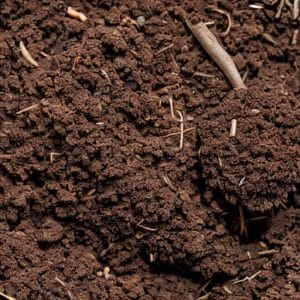
How Organic Practices Promote Optimal Plant Growth.
How organic practices improve soil structure, nutrient availability, and water retention, promoting optimal plant growth.
Organic practices offer several benefits that improve soil structure, enhance nutrient availability, and increase water retention, ultimately promoting optimal plant growth. Let’s explore how organic practices contribute to these aspects:
 Soil Structure:
Soil Structure:
Organic practices, such as incorporating organic matter like compost and cover cropping, improve soil structure in multiple ways:
Increased Soil Aggregation: Organic matter binds soil particles together, creating aggregates that improve soil structure. This leads to the formation of pore spaces, enhancing air circulation and water infiltration.
Enhanced Soil Tilth: Organic matter improves soil tilth, which refers to its crumbly and friable texture. This allows roots to penetrate easily, promoting better nutrient and water uptake.
Reduced Soil Compaction: Organic practices help prevent soil compaction by reducing heavy machinery use and encouraging the growth of beneficial soil organisms. Compaction is detrimental to root development and limits nutrient and water movement.
 Nutrient Availability:
Nutrient Availability:
Organic practices play a crucial role in improving nutrient availability for plants:
Organic Matter Decomposition: When organic matter is added to the soil, it undergoes decomposition by beneficial microorganisms. This breakdown releases essential nutrients in plant-available forms, ensuring a consistent supply throughout the growing season.
Nutrient Retention: Organic matter acts as a sponge, holding onto nutrients and preventing leaching. This reduces the risk of nutrient loss from heavy rainfall or excessive irrigation, allowing plants to access nutrients as needed.
Microbial Activity: Organic practices support the growth of beneficial soil microorganisms that contribute to nutrient cycling. These microorganisms break down organic matter, converting it into forms that can be readily absorbed by plants, increasing nutrient availability.
Water Retention:
Organic practices improve the soil’s ability to retain water, benefiting plant growth, particularly during dry periods:
Increased Soil Organic Matter: Organic matter has high water-holding capacity. It acts like a reservoir, storing water and releasing it slowly to the plants’ root zone. This reduces water stress and ensures a steady water supply to support optimal plant growth. Or you could go soil-less
Improved Soil Structure: Organic practices improve soil structure, creating pore spaces that enhance water infiltration and drainage. This prevents waterlogging and allows roots to access water more effectively.
Reduced Evaporation: Organic mulches, such as straw or wood chips, can be used to cover the soil surface. These mulches reduce evaporation by providing a protective layer, minimizing water loss through evaporation from the soil surface.
By implementing organic practices, cultivators can create a favorable environment for optimal plant growth. Improved soil structure allows roots to explore a larger volume of soil, accessing nutrients and water more efficiently. Enhanced nutrient availability ensures plants receive a consistent supply of essential elements. Increased water retention prevents water stress and supports plants’ hydration needs. Collectively, these factors contribute to healthier plants, increased yields, and sustainable cultivation practices.

